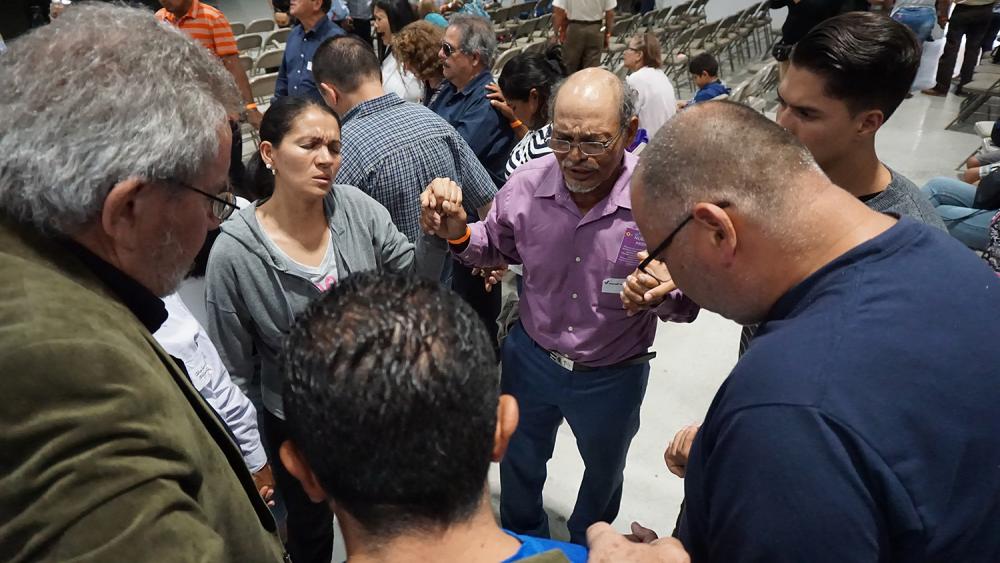Each step is a prayer.
Each step is a supplication to the God who knows what it means to wander for months or years on end, searching for a land of promise.
Each step is a sacred protest, calling out to God for mercy and justice.
Thus millions of prayers were raised, as friends flew west from nations such as Cameroon and Senegal, as friends walked north from the barrios of Honduras and El Salvador, seeking an answer to their requests to God.
Earlier this year, I spent time with a delegation of fellow Mennonites at the USA/Mexico border with New York-based New Sanctuary Coalition (NSC). NSC suggested we used the “friends” as a way to reshape the narrative of how we name those who seek abundant life and our relationships with them.
In their journeys toward the southern U.S. border, our friends embodied a desire to experience lives free from abuse. Lives free from war. Lives spent with one’s children or parents. Most of all, these Friends sought life itself.
At the San Diego/Tijuana border, though the pace of the journeys slowed, the prayers did not falter. If anything, the prayers grew more fervent as our friends now faced a barrier they had dreamed of reaching, the entrance to the “Promised Land.” The real and numerous barriers for entry were often more significant than they had imagined – they were more significant than I had imagined, a U.S. citizen with some awareness of immigration law. Many friends, having walked for months already, now found themselves at the border for additional months, waiting their turn until their number was called (an illegal system that deliberately slowed migrants’ entries into the USA immigration system.)
While still in Mexico, many who sought asylum were prepared by sympathetic USA immigration lawyers for their “credible fear interview” with Immigrations and Customs Enforcement. The entirety of friends’ asylum cases rested on this interview. With their fate hanging in the balance in proving their “credible fear,” how do our siblings from the Majority World hear Paul’s invitation to the Philippians in 4:6? When Paul urges the believers to “not worry about anything, but…let your requests be made known to God,” what does that mean for those who face long stays in deplorable detention centers? Or those who are required to await their court hearings “al otro lado” – on the other side in Mexico?
The hope that Paul encourages here is not to be found in the human-made immigration system’s ability to mete out true justice. Rather, Paul reminds the believers of the God-who-suffers with them, whose profound empathy cannot be kept out of hieleras (“icebox” detention cells), who knows the pain of the refugee fleeing violence, and who knows the complete heartbreak of a child separated from their parent.
Paul’s words echo in believers’ hearts in the USA, too, as he reminds us of the God-who-dissolves boundaries. Faith communities here rally to pray and act in hope that God’s love will break down the barriers that divide us from one another. There’s a fire in the step of those who provide sanctuary, who march for change, who accompany friends to court for hearings.
Together, we do not worry that the USA immigration system will be just: it won’t be. In all that we do, we open our hearts and minds and bodies to pour out our hopes to God. Whether from the north or south, east or west, each step we take is a prayer. A prayer that the hard border between us will crack under the weight of God’s love. A prayer toward melting calloused hearts and unjust systems. A prayer toward setting the captives free. A prayer for the peace of God, which surpasses all understanding and draws us into deeper community with one another and God.
Each step is a prayer.
—A Mennonite World Conference release by Valerie Showalter
This testimony is part of the Peace Sunday worship resource for 2019. Click here to see more: www.mwc-cmm.org/peacesunday
